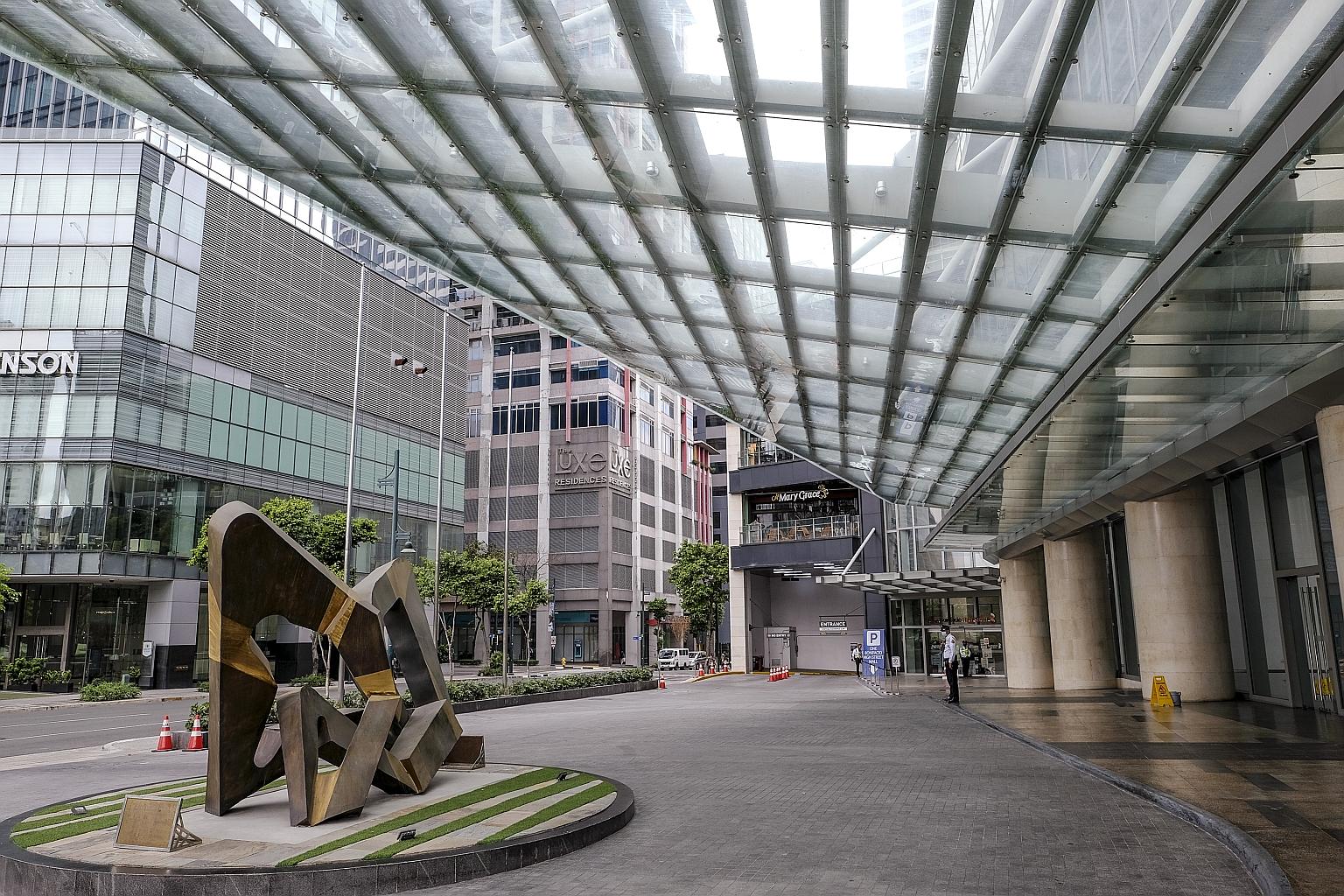Coronavirus outbreak
Philippines shuts markets; other bourses plan to stay open
Sign up now: Get ST's newsletters delivered to your inbox

The Philippine Stock Exchange tower at Bonifacio Global City in Metro Manila. The halt in stock trading took place after several bourses around the world closed trading floors or paused trade.
PHOTO: BLOOMBERG
Follow topic:
The Philippines halted stock trading indefinitely, becoming the first country to shut financial markets in response to the widening coronavirus pandemic. Bond and currency trading were also suspended.
The closures in Manila, while prompted by health reasons, with the authorities citing risks to the safety of traders amid a broad nationwide lockdown, raises the prospect that other exchanges may follow.
The move comes after some bourses around the world closed trading floors or paused trade, with markets in meltdown and roughly US$14 trillion (S$20 trillion) in global shareholder value erased.
It is also open-ended, unlike China's extension of Chinese New Year holidays in January, which delayed the resumption of trade, or the run of holidays declared in Sri Lanka this week.
Replying to queries from The Straits Times, the Singapore Exchange (SGX) said that its "priority is to ensure that our securities and derivatives markets are always available and accessible so that our clients can continue to manage their investment portfolios during these volatile times".
It added: "We have been closely monitoring our securities mar-ket, and price discovery continues to be orderly. SGX has in place measures such as dynamic circuit breakers to ensure orderliness of trading, and works closely with market participants to assure the financial robustness of the marketplace."
In Malaysia, where a lockdown similar to the Philippines' goes into force today, the securities regulator said all capital markets will operate as usual.
Bourses in South Korea and Indonesia said they have no plans to shut trading, while Australia's exchange said it has measures to maintain the market's orderliness and resilience.
United States Securities and Exchange Commission chairman Jay Clayton told CNBC on Monday - after US stocks plunged 12 per cent that day, the most since 1987's Black Monday crash - that stock markets should continue to operate.
Nasdaq chief executive Adena Friedman told Bloomberg TV that it is much better to keep the markets open, citing companies' capital-raising needs, and adding that "pent-up issues" can occur with closures.
Papa Securities strategist Manny Cruz said: "This restricts the exit mechanism, so it won't be taken kindly by investors who don't like their flow of funds constrained.
"What the market would do when trading resumes depends on the state of global markets. We will see a sharp sell-off if the global weakness continues and a sharp rebound should there be a recovery worldwide."
Shutting markets during times of crisis is extremely rare but not without precedent. The US stock market closed for almost a week after the 9/11 terrorist attacks in 2001, while Hong Kong halted trading in the wake of the Black Monday crash.
Some Asian markets staged a small recovery yesterday in see-saw trading after Wall Street's rout on Monday, on more support measures from central banks.
Japan's Nikkei closed up 0.1 per cent higher after the Bank of Japan offered US$30.27 billion in its 84-day dollar funding operation, the largest amount since the 2008 global financial crisis.
Singapore's Straits Times Index closed down 1.7 per cent lower at 2,454.53, after veering between gains and losses. The local market remains in bear territory, down 28.1 per cent from its 52-week high.
Australia's S&P/ASX led the region with a 5.8 per cent gain after a massive central bank cash injection, but South Korea's Kospi fell 2.5 per cent. Hong Kong shares rose 0.9 per cent, while the Shanghai Composite Index closed down 0.3 per cent.
Regulators in France, Italy and Belgium yesterday banned short-selling in some stocks. This involves traders selling borrowed shares with the aim of repurchasing them at lower prices to return to the lender.
SGX said yesterday that short-selling in itself can provide liquidity and price discovery, which market participants require. It added that Singapore has in place safeguards to target the risks of potential abuse.
BLOOMBERG, REUTERS
- Additional reporting by Aw Cheng Wei

